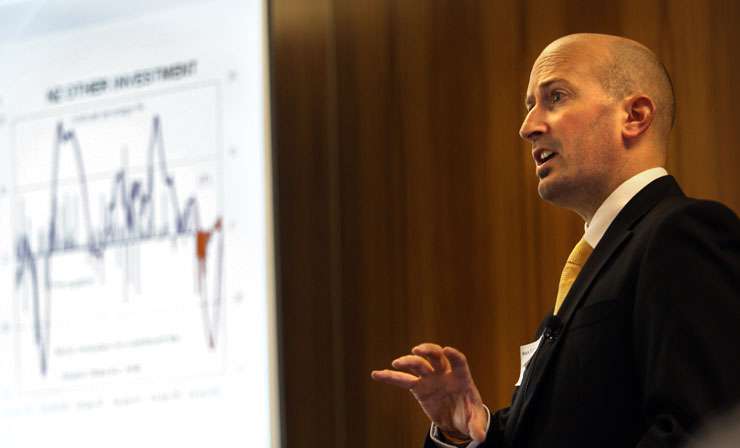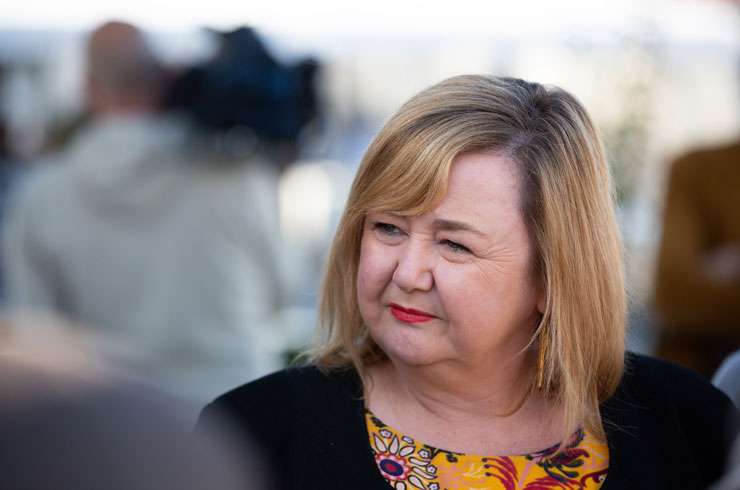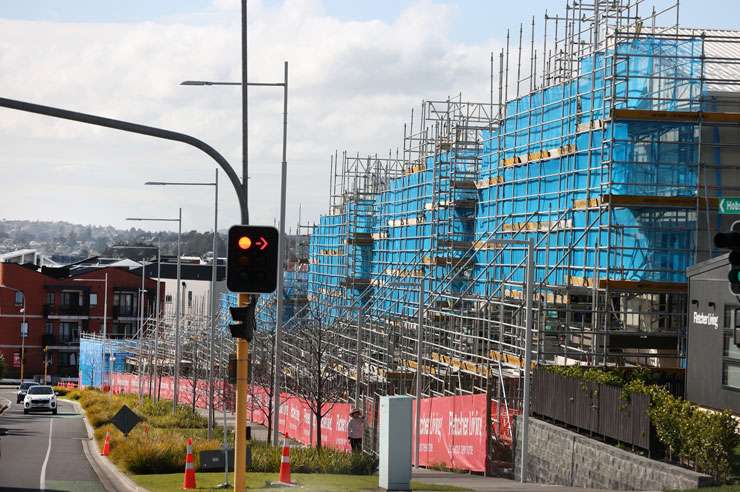New Zealand house prices have reached a new milestone, with the national average property value hitting $1 million for the first time.
New figures from OneRoof and its data partner Valocity show the typical cost of a property around the country increased 4.9% in the last three months and 27% since September 2020.
The doubling of the national average property value in less than a decade will put further pressure on first home buyers and push up deposit requirements for many to $200,000 - more than three times the average annual wage.
The OneRoof figures show the extent of the house price surge after the first national lockdown last year and raise concerns that measures aimed at slowing house price growth are not working fast enough. House-hunters are now spending about $213,000 more than they did a year ago on the typical home.
Start your property search
Much of the national growth has been fuelled by seven years of interest rate cuts and, in the last year, price jumps of more than 30% in Gisborne, Manawatu-Whanganui, Wellington, Hawke's Bay and Bay of Plenty.
The acceleration in house prices has seen Wellington and Tauranga join Auckland and Queenstown-Lakes in the $1m club, with Hamilton, Napier, Hastings, Nelson and Whangarei not far behind.
Auckland remains the most expensive place to buy property, with the city recording an average property value of $1.415m (up 24% on last year) while West Coast is New Zealand's most affordable housing market, with an average property value of $353,000.
Despite the price increases, first-home buyers' share of new mortgage registrations over the year has held steady at around 40%.
But the surge has meant that buyers searching now would need to stump up $50,000 more for a 20% deposit than those purchasing this time last year.
Fewer homes for sale
The price growth is taking place against a backdrop of a slump in listings and sales volumes, and expectations that prices will jump further once the country is fully out of lockdown and buyers try to secure a home before interest rates rise.
Nationally, there were 6% fewer homes available for sale last month compared to the month before and 36% fewer listings than in August 2020.
The monthly drop in new listings was even sharper, with the number of new properties coming to market last month down nearly 19% on the month before.
Many in the industry have told OneRoof that the $1m milestone is a frightening reality check.
New Zealand's housing market first broke new ground in 2004, when Herne Bay, in Auckland, became the first suburb to record a median house price of $1m. In 2016, Auckland became the first New Zealand city to record an average property value of $1m, but other major housing markets have since joined it.

ASB chief economist Nick Tuffley says access to the bank of mum and dad is becoming a critical factor in the housing market. Photo / Supplied
Internationally, New Zealand is regularly cited as being one of the worst countries for housing affordability, while local studies have highlighted the pressures in the country’s housing market.
Independent economist Tony Alexander said record low interest rates and the temporary removal of the loan to value ratio restrictions last year had helped boost prices in the last 12 months but they weren’t the only factors.
“We have also seen first home buyers prioritising home purchase over newly unavailable foreign travel, a belief that one million Kiwis offshore will flock home and buy houses, and purchases of holiday homes and better-quality properties for working from home,” Alexander said.
“Then, on top of that, we have a range of factors driven by the simple upward momentum of prices feeding on itself – FOMO, or fear of missing out.”
He added: “This has encouraged parents to stump up cash for their offspring to buy, or to buy investment properties to be ready for when they need to make their own purchase.”
Levelling the playing field
The Government and the Reserve Bank have introduced measures aimed at cooling house prices and levelling the playing field for first home buyers, including bringing higher deposit requirements for investors and extending the bright line test to 10 years.
The Reserve Bank is also consulting on ways to tighten mortgage lending standards by adjusting Loan-to-Value-Ratios and implementing Debt-to-Income restrictions and/or interest rate floors.
The Housing Minister, Megan Woods, told OneRoof that more work was underway to address the housing crisis, which she said Labour had inherited from the National Government.
“We are already seeing a lot of ‘green shoots’, with positive indicators including record building consents and house price stabilisation in many centres,” she said.

Housing Minister Megan Woods says Labour inherited the housing crisis. Photo / Sylvie Whinray
“Some of the housing policies we announced earlier in the year to tilt the playing field toward first home buyers, such as interest deductibility changes for housing investors, and the $3.8b housing acceleration fund to enable more affordable housing, have yet to kick in.”
James Wilson, director of valuation at Valocity, said property values were at a crisis point, and left unchecked would drastically impact buying and selling behaviour in the housing market.
“If you’re a home-owner and you’ve owned your house for five or 10 years on paper you are doing really well. However, you probably can’t afford - or wouldn’t want to take on the extra debt - to upsize,” he said.
“If we don’t address the issue, the outlook will be grim for coming generations. The rate of growth may slow but prices aren’t going to fall back. They will keep rising. And the number of properties that are bought and sold will be fewer, with the housing market only open to narrow section of society.”
'Utterly crushing'
Lesley Harris, director of the First Home Buyers Club, said the recent changes to the LVR restrictions had not helped first home buyers. “What have the Reserve Bank changes done to help first home buyers save for their deposit or get a home loan?
“You can build all the houses you like but people can’t actually get the lending to buy them.
“House prices are soaring but salaries are not soaring at anywhere near the same rate, so we’re just seeing people having to compromise, compromise, compromise.”
Green Party MP Chloe Swarbrick said the $1m national average property value was “utterly crushing and not just for young people”.
“I’ve got friends in their 30s and 40s who look as if they’re never going to be able to afford a home,” she said, adding that the number of pensioners without their own home was also on the rise.
Swarbrick said the Government had a responsibility to intervene, and urged ministers to end interest-only mortgages and introduce a Capital Gains Tax to help raise revenue that can be spent on the development of more properties. She also called for greater rights for renters and increased regulation in the rental market.

Greens MP Chloe Swarbrick: "I’ve got friends in their 30s and 40s who look as if they’re never going to be able to afford a home." Photo / Jason Oxenham
Arthur Grimes, former chairman of the Reserve Bank and a former board member of the Financial Markets Authority, said the situation was “crazy”.
“It’s appalling to pay [$1m] to get an average house in New Zealand, in a country with huge amounts of spare land and not much population,” he said.
“It just comes back to intergenerational inequality. The haves just get richer and the have-nots get poorer and nobody seems to want to do anything about it.”
Focus on building
Nick Tuffley, the ASB’s chief economist, said that for first home buyers, access to the “bank of mum and dad” mattered a lot more.
“That’s where it’s turning it into the fortunate remain fortunate but the unfortunate are finding that bottom rung just keeps lifting away from them,” he said.
A focus needed to be placed on bringing down the cost of building houses, he said, pointing out that other countries were able to mass produce homes much better than we do.
Some real estate agents were also concerned at the increase in prices.

Construction of new homes in Onehunga, in central Auckland. Photo / Fiona Goodall
Nicki Cruickshank, principal of Tommy’s Wellington, said that buyers in capital faced spending well over $1m. “You’re looking at $1.3m to $1.4m now. Two or three years ago that would have been $850,000,” she said.
“I've had a client just buy a house in Timaru for $420,000 after we sold her Wellington house for $1.375m, so it’s a big difference.”
Jeremy O’Rourke, managing director for Lodge Real Estate in Hamilton, said the news was shocking.
“I've got children, so this is not so good news for them.”













































































